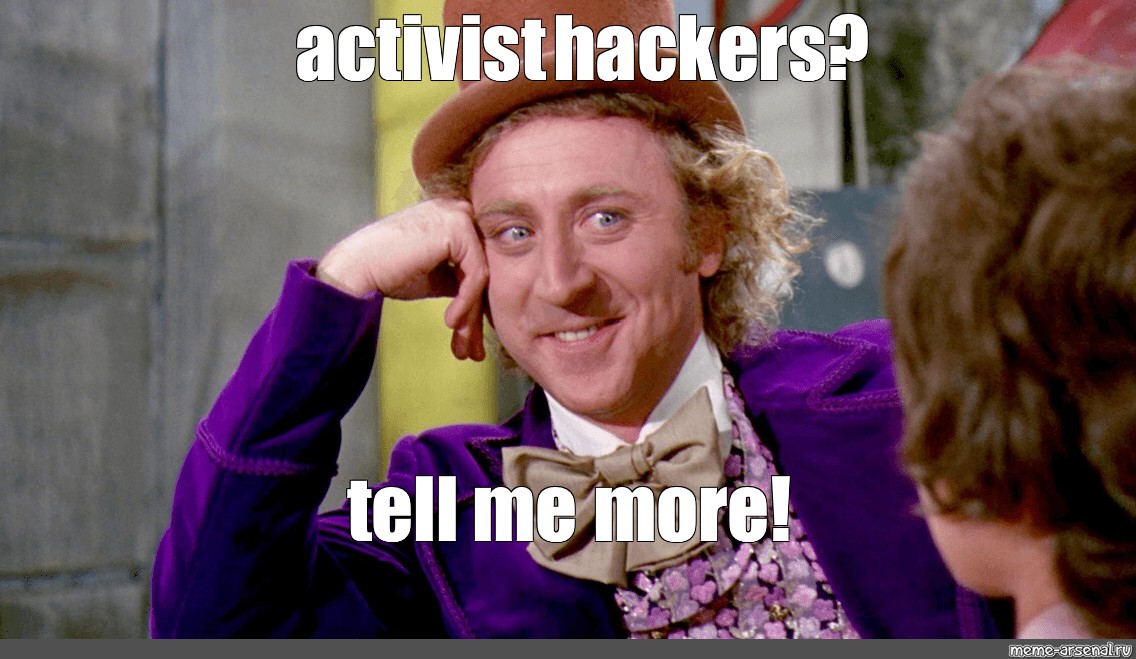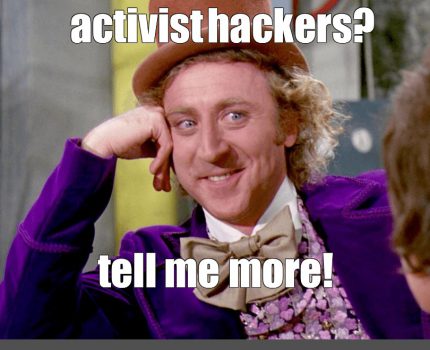In this post, I’ll be looking at the power of memes in digital activism. I’ll dive into their significance as a vehicle for political expression and participation, or in the parlance of Stuart Hall (the godfather of cultural studies) how memes are re-represented or re-coded in different cultural contexts, and I’ll touch upon how memes are also subject to media framing.
Science first, culture second
The meme’s origin lies within the scientific community. Dawkins (1976), an evolutionary biologist, argued that theorists “need a name for the new replicator, a noun that conveys the idea of a unit of cultural transmission, or a unit of imitation”. He labelled this unit of cultural transmission the “meme” and, in doing so, provided the terminology for discussing the spread and popularity of quick-replicating cultural units. Jump forward to the internet era, and it’s now used to refer to ideas and images as they dart through cyberspace.
These “cultural artefacts” are examples of user-generated content, where political commentary, satire, and debates over notions of legitimacy, for example, can be enacted often with a humorous undertone. Highly personalised yet collectively decoded, memes are the perfect shapeshifter, possessing those rare media qualities – the ability to communicate vastly different meanings while retaining others, all within a bite-sized image usually accompanied by a couple of lines of text. Shifman (2013) defines internet memes as,
“a) a group of digital items sharing common characteristics of content, form, and/or stance, which (b) were created with awareness of each other, and (c) were circulated, imitated, and/or transformed via the Internet by many users”. (Shifman, 41: 2014)
The voice of the people
Memes can and have been used to share collective concerns. Because they’re so easily created, adapted, and disseminated, they’re a vital medium of drawing attention to topics that might have been shelved by politicians or ignored in the mass media. For example, in countries under dictatorial rule, like Zimbabwe, memes have been used to speak out against President Robert Mugabe’s government. For cyber activist Fuzzy Goo, the sharing of memes and images mocking the country’s leaders is a new weapon against the regime.

And who could forget the #OccupyWallStreet meme “we are the 99%” that was re-worked in countless ways across the internet to spread a collective concern about inequality in the US.


Media framing
Memes, just like other media, are prone to framing. How we decode a meme is influenced by an assortment of cultural codes. The roots of framing go back to Erving Goffman (1974), who explored how we organise our own experiences and argued that we experience life, both in terms of how we receive and interpret and how we engage—through frames. Our “reality” depends on the frames we employ to approach, analyse, and understand the world around us. Consequently, how the media frames certain topics and events influences this process and directly affects how we “know what we know”.
Think about how the media use specific words to frame our understanding. For example, consider how a news article uses the term “death tax” or “estate tax,” “illegal immigrant” or “undocumented worker,” “pro-choice”, or “pro-abortion”. In their article, Internet Memes, Media Frames, and the Conflicting Logics of Climate Change Discourse, Ross and Rivers (2019) look at the difference between media framing and what they call “individual framing” – “how the individual member of the audience cognitively processes a specific issue or situation”. They argue that memes can be seen as individual framing because they are generally “user-generated” content created by an audience member and then consumed by an audience comprised of individuals like the meme-maker. Does this argument highlight a familiar concern surrounding the effectiveness of this type of communication for social change – are memes just another example of digital activism bouncing around in the internet echo chamber?
What do you think?
Just before I go, here’s a great example of just one of many memes created by Greenpeace for a campaign against Shell’s proposed drilling in the artic. In this campaign, Greenpeace created a “fake” Shell webpage using memes in an ironic way to draw people’s attention to the harmful effects of oil excavation. They also allowed users to create their own memes with digital tools, which resulted in thousands of memes being circulated across the net and Shell backing off the proposed drilling. Great idea!


